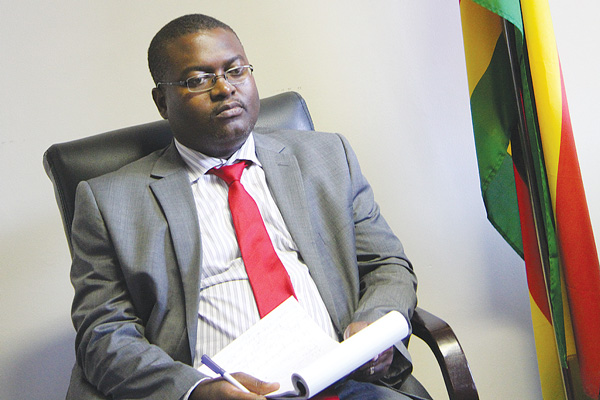
A leadership crisis rocking Zimbabwe’s political parties has dampened hopes that the country’s fortunes will change soon, even as the crucial 2018 harmonised elections draw closer.
BY RICHARD CHIDZA
From Zanu PF to MDC-T, the country’s political parties are grappling with leadership renewal challenges that have torn some along factional lines.

Less than a year after purging close to 150 top officials, including former Vice-President Joice Mujuru over an alleged plot to topple President Robert Mugabe, the ruling Zanu PF is now divided into distinct factions vying for control of the party.
A faction backed by former liberation war fighters is supporting Mujuru’s successor Vice-President Emmerson Mnangagwa to take over from Mugabe, while the party’s so-called Young Turks are rallying behind First Lady Grace Mugabe.
MDC-T leader Morgan Tsvangirai survived a bid to oust him for failing to beat Mugabe in the 2013 elections, before he pushed those that were baying for his head out of the party.
However, the expulsion of former Finance minister Tendai Biti has not stopped the fissures in the MDC-T amid claims former spokesperson Nelson Chamisa and former deputy prime minister Thokozani Khupe are plotting to topple Tsvangirai.
- Chamisa under fire over US$120K donation
- Mavhunga puts DeMbare into Chibuku quarterfinals
- Pension funds bet on Cabora Bassa oilfields
- Councils defy govt fire tender directive
Keep Reading
Former Industry minister Welshman Ncube’s MDC, former Finance minister Simba Makoni’s Mavambo/Kusile/Dawn (MKD) and former Home Affairs minister Dumiso Dabengwa’s Zapu all seem to have suffered stunted growth.
Mujuru’s People First has been huffing and puffing, leading to fresh questions about her commitment to take her former mentor, Mugabe and Zanu PF head-on in 2018.
Dewa Mavhinga, a democracy activist and political analyst, said the problems bedevilling political parties in Zimbabwe called for serious introspection.
“There is always hope even in the midst of the darkest crisis, but obviously there is a challenge for the current crop of political leaders and political institutions to critically examine themselves and ask themselves if they are fit to deliver freedom, development and a better life to ordinary Zimbabweans,” Mavhinga said.
“There is need for political leaders and institutions to urgently shift focus from narrow personal agendas to embrace a truly national cause that puts the people of Zimbabwe first and seeks to secure their best interests.”
He added: “Politically, Zimbabwe is fast-approaching a period of massive change within political parties and this presents an opportunity for Zimbabweans to rally behind new leaders who care about bread and butter issues.”
Academic and publisher Ibbo Mandaza said the problems affecting most of the political parties represented a leaderhip crisis. However, Mandaza said Zimbabwe could be on the cusp of change.
“There is hope, there has to be in the middle of this mayhem. The problems in all political parties are a reflection of a leadership crisis, a political and economic crisis that also affects the social fabric of the country,” he said.
“The state and all parties are incapable of reform, hence we have a leadership vacuum.
“Mugabe is stumbling and falling with reckless abandon. But there are interesting things that are happening underneath. We are not prophets, but when the history of this country is written in the future, the record will show whatever will have happened began in 2008.”
Mandaza said opposition parties were at the moment not able to influence events in Zimbabwe because they were weakened.
“As for the opposition, they have been thrust into the back-burner of national politics,” he said.
“There is nothing much to say but the focus now is on the twin evils in our midst — Zanu PF and the government.
“They are inseparable and what is happening within these institutions will shape the future of this nation”.
With events in the ruling Zanu PF party seemingly replicating themselves across all parties, from instability, internal fights and violence, Alex Magaisa a blogger and law lecturer said: “Indeed the situation is like Zimbabweans are waiting for Godot [a character in the book by Irish novelist Samuel Beckett who never arrives]”.
“I think we are going through a very lean period politically, economically and socially,” Magaisa said.
“There is not much substance going on in our politics right now except battling for leadership and therefore in-fighting. I think there is fatigue in the opposition and civil society.”
He said underneath the uneasy calm, political temperatures in Zimbabwe were bubbling and the country was nearing a rapture of unprecedented proportions.
“Generally, there is need for something to lift people out of this atmosphere of hopelessness,” he said.
“That will probably be an event of nature, not man-made. I think right now the country has been reduced to a waiting game — waiting for the end of Mugabe’s tenure, by whatever means.”
Zanu PF has over the years operated like a mean machine with strict discipline, which discipline has now been thrown out of the window.
Since the emergence of Grace on the political scene after accepting appointment as the Zanu PF women’s league boss, the former liberation movement has been shifting from one crisis to another.
Grace has made pronouncements that would have been taboo just over a year ago, throwing pot shots at veterans of the country’s liberation war.
At one time she declared “the fact that one fought in the war is not guarantee for leadership,” a statement that was seen as directed to Mnangagwa.
Mugabe wants to stand for another term in the 2018 elections, by which time he would be aged 94.











